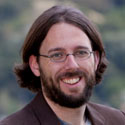Advisory Board and Editors Climate Change Biology

Farzin Shabani
I am an Associate Investigator in palaeo-ecological vegetation modeling for the new ARC Centre of Excellence for Australian Biodiversity and Heritage (CABAH). I am also a Research Fellow in environmental modeling and climate change in the Department of Biological Sciences at Macquarie University.
My profile at Macquarie University: https://directory.science.mq.edu.au/users/1600
My profile at Flinders University: https://www.flinders.edu.au/people/farzin.shabani
ARC Centre of Excellence for Australian Biodiversity and Heritage (CABAH): https://epicaustralia.org.au/

Tanvir Shahzad
Dr. Tanvir Shahzad is an Associate Professor at the Government College University, Faisalabad. He is an environmental scientist with a PhD in Agronomy, Ecology, Biogeochemistry from AgroParisTech.
Dr. Shahzad's research focuses on the intersections of soil biology, soil ecology, and use and assessment of nanomaterials for the benefit and sustainability of soils, more specifically, he is currently working on making Pakistan's soils sustainable.

Andrew A Shantz
I am a marine ecologist, utilizing principles from community and physiological ecology to understand the impacts of global change on marine ecosystems.

Jacyra Soares
Degree in Meteorology from University of São Paulo (1983), Master in Oceanography (Physical Oceanography) from University of São Paulo (1989) and PhD from University of Southampton, England (1994). In 1995 held postdoctoral activities in the Oceanographic Institute at USP. Experience in Physical Oceanography and Meteorology, with emphasis on numerical modelling and in situ observations of air-sea interaction (oceanic and atmospheric turbulence) and micrometeorology (Planetary boundary layer, turbulence, radiation and energy balances, turbulent fluxes). Study of the atmosphere and ocean in Equatorial and Antarctic regions.

Mar Sobral
Spanish Evolutionary Ecologist. Formerly at Stanford (US) and CNRS (France). Now at USC (Spain).
My research looks at the evolutionary ecology of plant-animal interactions and the impact of global change on biodiversity, particularly regarding ecosystem functions and services such as carbon storage.

Katharine L Stuble
Plant Biologist at The Holden Arboretum. Research focuses on the ecological impacts of global climate change and species invasions.
Our lab researches the basic mechanisms underlying the maintenance of diversity within communities, as well as how global change may alter these communities and the services they provide. We focus on two main drivers of global change: climatic warming and species invasions with a particular focus on how global change is altering interspecific interactions ranging from competition to mutualisms.

Armando Sunny
Dr. Armando Sunny is a Researcher and Professor within the Applied Biological Sciences Research Center, Science Faculty at the Autonomous University of the State of Mexico (UAEM).
He is interested to know how certain features of the landscape affect the genetic diversity and structure of species in anthropized environments, for this he performs analysis of landscape genetics, population genetics, niche modeling, SIG, landscape connectivity and global change analysis, especially in amphibians and reptiles.

Jonathan D Tonkin
My research is focused around what promotes and maintains biodiversity at a range of spatial scales. Much of my work focuses on stream ecosystems, but my interests are question focused, not system specific. While my central interest lies in disentangling the mechanisms that structure metacommunities, I also tackle questions ranging from local to global, and from community ecology through to macroecology. I focus on a variety of basic ecological concepts and processes, including linkages between disturbance, productivity and diversity, biodiversity loss, ecosystem function, dispersal, and community assembly. I also aim to tackle applied ecological issues such as global change, land-use change, river regulation, and restoration, with the goal of applying ecological theory to effectively manage threatened ecosystems. My current research ties these issues together into the following three main themes: 1) Metacommunity ecology; 2) Global change ecology and macroecology; and 3) Restoration ecology. In light of these three themes, I am particularly focusing on the unique hierarchical and dendritic structure of river networks, and how this structure influences the biodiversity patterns of river communities.

Andrew Tredennick
I am a quantitative ecologist interested in ecological forecasting and the stability of populations, communities, and ecosystems. I have expertise in statistical analyses of ecological systems, population modeling, and the analysis of remote sensing data to address environmental problems.

Giorgio Vacchiano
MA and PhD in forestry at University of Turin. Assistant professor in forest management and planning at University of Milan

Jianjun Wang
Dr. Jianjun Wang is Professor of Nanjing Institute of Geography and Limnology, Chinese Academy of Sciences. He studies microbial biogeography and global change. His main topics are related to the questions on how microbial diversity and community composition varied within Earth’s surface and subsurface, especially aquatic environments. He is using self-obtained large microbial data sets, in-situ experiments, as well as modeling methods to achieve these answers.

Ethan P White
Associate Professor in the Department of Wildlife Ecology and Conservation at the University of Florida. Moore Foundation Investigator in Data-Driven Discovery. National Science Foundation CAREER 'Young Investigators' Award recipient. Member of the Data Carpentry and Impactstory boards of directors.
My research focuses on data-intensive questions in ecology, using large ecological datasets, advanced statistical/machine learning methods, and theoretical modeling to understand ecological patterns.

